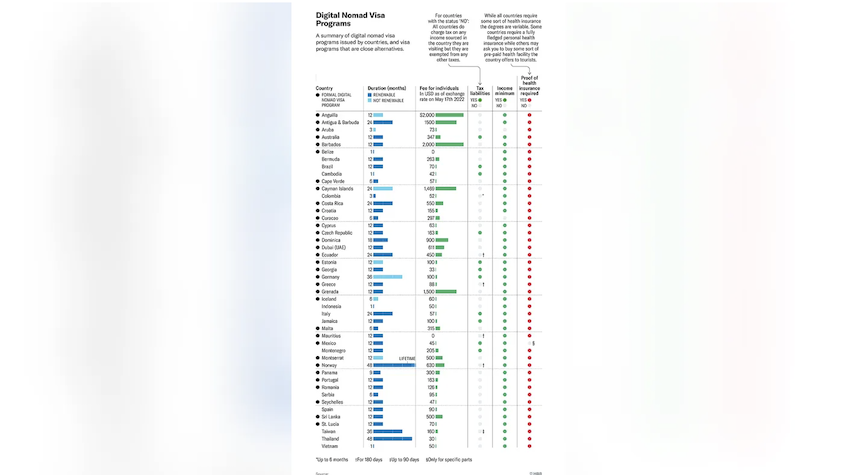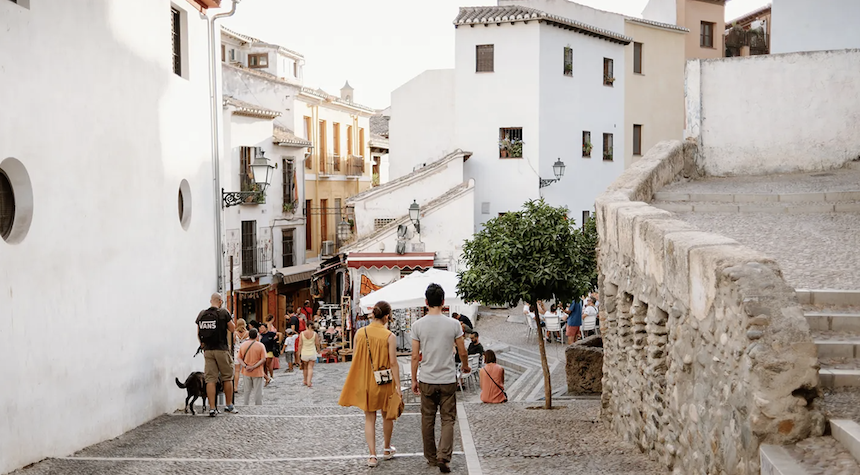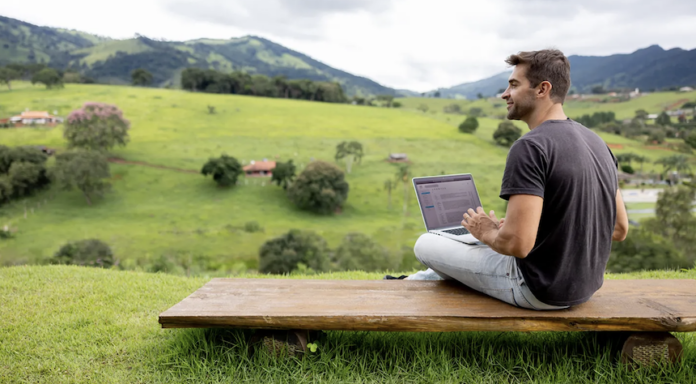A rural area in Spain pays remote workers $16,000 for them to relocate and conduct their business in a rolling, green valley just three hours away from Madrid.
The list of countries that are looking for “digital nomads”, or workers and entrepreneurs who want to relocate, is expanding.
The Regional Government of Extremadura announced last month its new “Live in Ambroz”, a program designed to attract remote employees by offering around $16,620 in grant money if they agree to live and work there for at least two years.
“This phenomenon will change where people live and it’s also going to affect the spatial distribution of talent,” Prithwiraj Chaudhury, a Harvard Business School professor in Boston, stated.
Choudhury studied innovation, remote working, and the concept of “work anywhere” for over a decade.
Choudhury stated that “many economists believed that talent would flock to megacities and that megacities are the future of the planet.”
“I believe that’s changed to some degree now. Megacities will still be important but many people will choose to live outside of them, especially if they can work remotely. Talent will be found in a variety of locations.
Digital nomads are people who have this talent, plus the ability to remotely work and the desire to travel the world.

Since the COVID-19 epidemic, they have formed a symbiotic partnership with countries all over the world. They trade the consumption of goods and services for a lower price of living and a beautiful new environment.
Ambroz Valley, a lush valley surrounded by mountains, is a collection of charming villages, which offer a variety of accommodations and local cuisine.
Hervas is the largest village in the region, with a population of 3,907 people. Some municipalities are home to less than 200 people.
Live in Ambroz aims to fight a problem known as “Empty Spain”.
According to a regional government press release, the main objective of the Regional Government of Extremadura is to prevent rural depopulation. The Ambroz Valley, for example, is one of those areas that suffers from a permanent loss of services and population.
Choudhury stated that the obvious benefit to a community is that digital nomads spend money in their community when they come.
They go to restaurants or stay at Airbnb. But I believe the bigger benefit would be to facilitate the connections between locals, and nomads so that the community could gain knowledge and even entrepreneurial opportunities.
Choudhury said that digital nomads get their fair share of the pie, whether it is financial or experiential.
He said that some people were looking for cheaper places to live and relocate.
You could move to a cheaper area, and you would have the same income, but you would spend less on housing, food, etc., so you’d have more money to save.

He said that some people are there to travel the world.
Choudhury stated, “There are many people who enjoy making connections with different communities and gaining life experiences in other places.”
You can build a diverse portfolio of cultural connections and experiences.
Dave Williams is an Atlanta-based entrepreneur who said that it was a bit of both.
Williams, who lives in Portugal, said that it is not far from the U.S. and has a great time zone. The weather is also very nice.
“But there’s also this concept of geo-arbitrage, where you can live in a cheaper place and take your money or income. Health insurance may cost $1,000 per year in some countries, but $1,000 per month in others. The cost of living in the U.S. is half or less.
His wife and he moved to Portugal in 2017. They now run NomadX which is a company that works with local government to create communities for remote workers and boost economies.
Choudhury stated that, before the pandemic, there were only two countries offering visas to remote workers, namely Barbados and Estonia.
Choudhury, in a Harvard Business Review article, highlighted that this number has risen to 60 since the pandemic.
According to the press release, Ambroz Valley will offer up to 200 grants for digital nomads. These grants can be used to “purchase housing, land, and other necessities to speed their arrival.”
Before they can apply for the Live in Ambroz Program, candidates must first obtain Spain’s digital nomad Visa and official residency. Applications will be available online this month through the Extremadura General Electronic Access Point.

Many other countries offer financial incentives to workers who want to move abroad or start a business.
Choudhury stated that Chile has been running a program called Start-Up Chile for over a decade.
“It wasn’t announced as a program for digital nomads because that was much more recent. But what Chile offers, and still offers, is an annual visa to foreign entrepreneurs who want to start businesses in Chile. Chile offers free equity capital of $20,000 to each foreign entrepreneur.
Choudhury cited Williams’ program on Madeira in Portugal as one of the successes.
Choudhury added, “They have even created a village of digital nomads.”
The increased geographic mobility among remote workers shapes communities and could reverse the brain drain that has been occurring in some places for many decades.
Williams described his experience as a digital nomad as life-changing.
Williams explained, “When we moved to Portugal, or whenever I had to go through a transition in my life or move, it helped me innovate and get to the next stage.”
“It’s very easy to be comfortable in the same location and live near your family or work. Although governments do not always get along, the general public seems to be able to get along and is very supportive. It gives you a great deal of faith in humanity,” he said.


